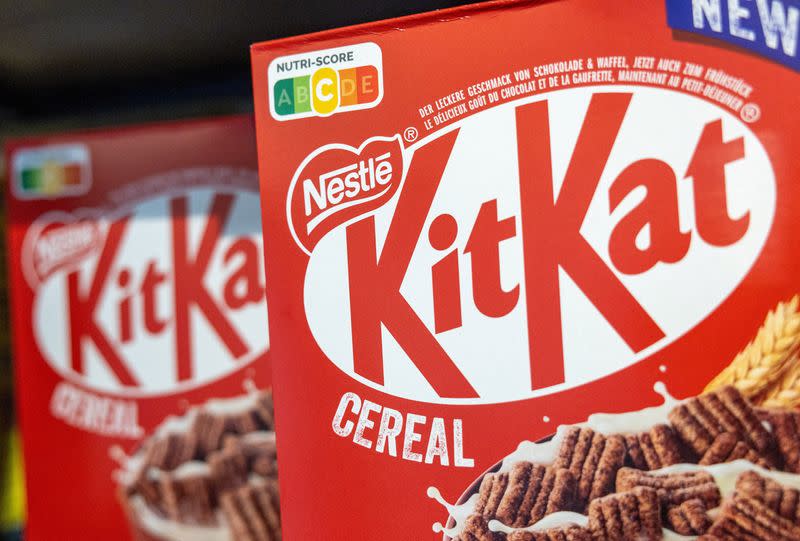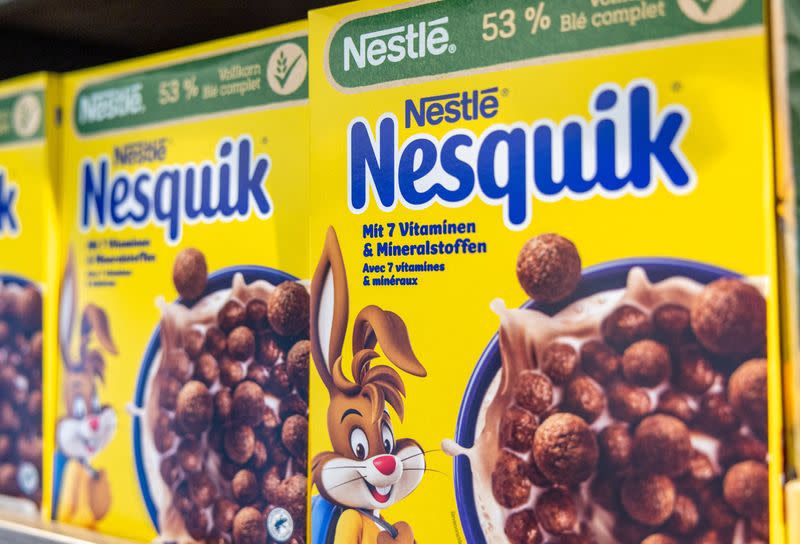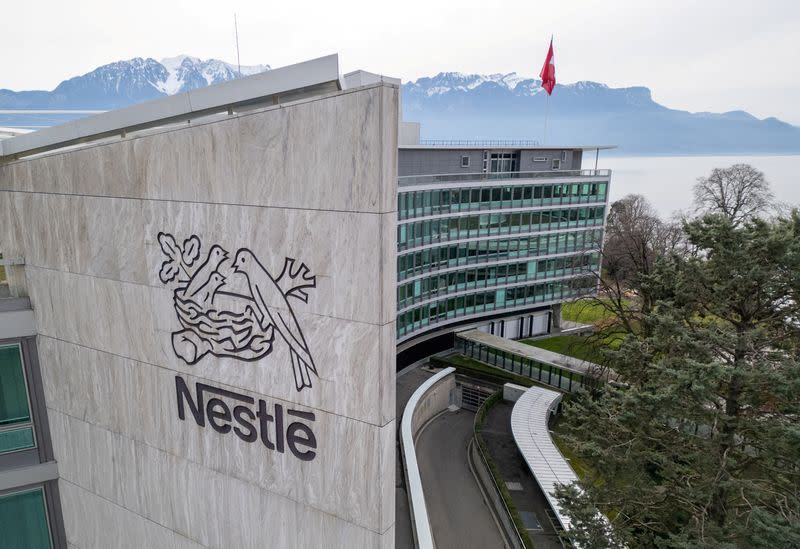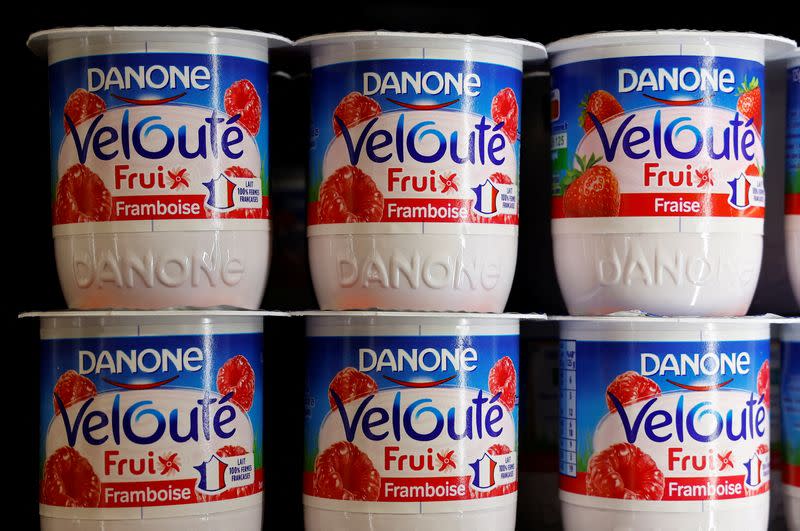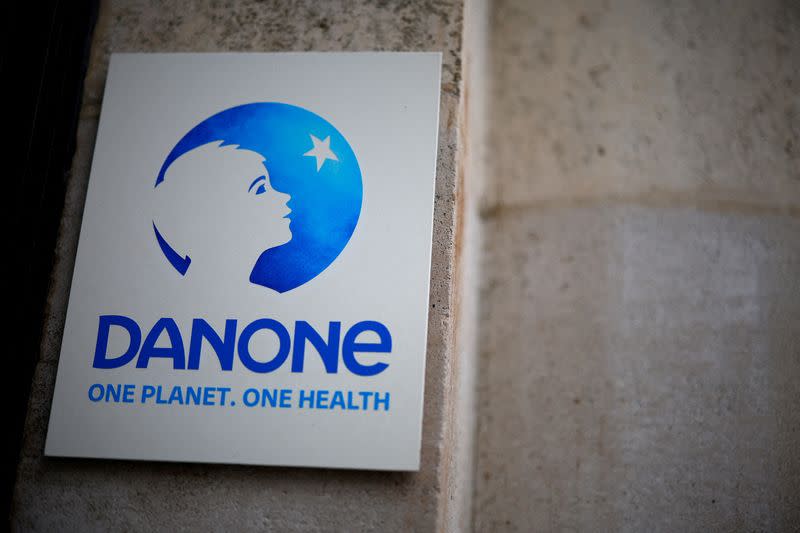Nestle, Danone see price hikes slowing after years of sharp increases
By Richa Naidu and Dominique Vidalon
LONDON/PARIS (Reuters) -Two of the world's top consumer goods companies, Danone and Nestle, said on Thursday they will slow price increases in 2024 after two years of hikes that prompted many shoppers to seek cheaper alternatives for basic goods like yoghurt and coffee.
But Danone, which owns brands including Evian and Badoit waters and Activia yoghurt, warned prices would still rise, citing a need to offset labour costs and shipping prices.
Nestle said it is seeing less impact from freight costs than in previous years although there has been some stress from attacks on shipping in the Red Sea.
Their comments follow British rival Unilever, the maker of Ben & Jerry's ice cream and Dove soap, which also saidthis month that price increases - which have helped fuel a protracted cost of living crisis - would start to ease.
To explain higher prices, the packaged goods industry has cited rises in input costs that started with the COVID-19 pandemic, which snarled global supply chains, and were exacerbated by Russia's invasion of Ukraine two years ago.
"We hadn't seen that sort of inflation spiking since 1973, 1974," Nestle CEO Mark Schneider told a call with journalists on Thursday. The Swiss firm, maker of Maggi stock cubes, KitKat chocolate wafers and Nescafe coffee, is the world's biggest packaged food company.
Shares in Nestle were last down 4.6%, Danone's were flat, and Unilever's down 1.4%.
As everything from sunflower oil to freight has become more expensive, spats between retailers and consumer goods companies have increased. Governments have criticised the price hikes and some of the companies responsible, most notably in France.
Worries that companies are pushing price rises too far, especially as the cost of living crisis helps retailers' private label brands grab market share, have led some investors and analysts to urge a focus on marketing and innovation.
With many consumers swapping costly branded goods for cheaper alternatives, Unilever CEO Hein Schumacher said earlier this month that his company's "competitiveness remains disappointing".
SLOWING INFLATION
This quarter, however, companies have said prices will rise in 2024 at a much slower rate as they recoup higher costs.
Overall inflation rates have fallen sharply and many central banks are expected to start cutting interest rates this year.
"Pricing will be a lot lower this year than last year," Nestle's Schneider said. "Growth going forward this year is going to be a lot more volume and mix-based," he added, saying this would likely be "pretty universal".
Nestle's shares trade at 19 times forward earnings over the next 12 months - higher than its European rivals Unilever, Danone and Reckitt Benckiser. But that price-to-earnings ratio, widely used in financial markets to gauge the relative value of stocks, is at its lowest since 2019.
Danone CEO Antoine de Saint-Affrique said during an earnings call that "we are in a world of slowing-down inflation" but that there would still be "volatility".
"We expect to have a price component in our growth, it will differ by regions," Saint-Affrique said, adding that "North America is the place where we took the first price increases, and this is where we see the fastest normalization".
Danone's shares have outperformed other European consumer staples stocks over the past year, rising 18%. Meanwhile, Nestle, which missed sales estimates on Thursday, fell 10% in the period, lagging a sector fall of 5%.
Unilever's Schumacher said this month he expected inflation to return to "normal levels ... between 2.5-3%" in 2024.
"We think it makes sense for pricing to moderate – the key for companies will be getting to a more balanced mix of volume and pricing," Aviva portfolio manager Richard Saldanha said.
"We do think a moderation could help stimulate some volume growth but we also believe ongoing investment into brands and innovation will remain a key driver."
($1 = 0.8777 Swiss francs)
(Reporting by Richa Naidu in London and Dominique Vidalon in Paris; Editing by Catherine Evans and Mark Potter)
